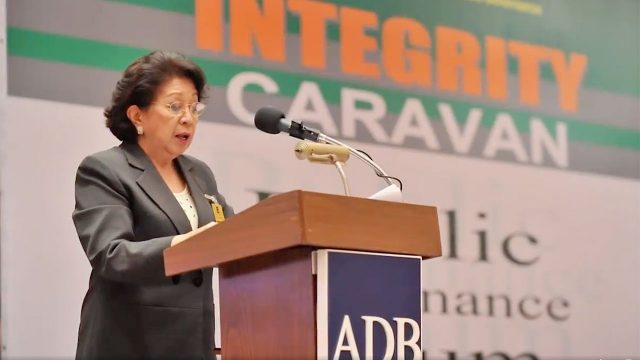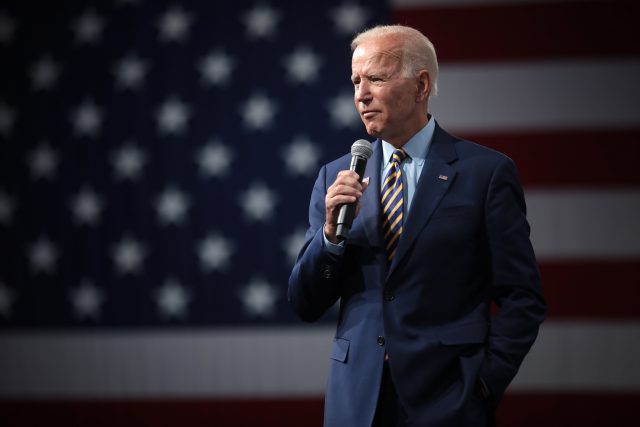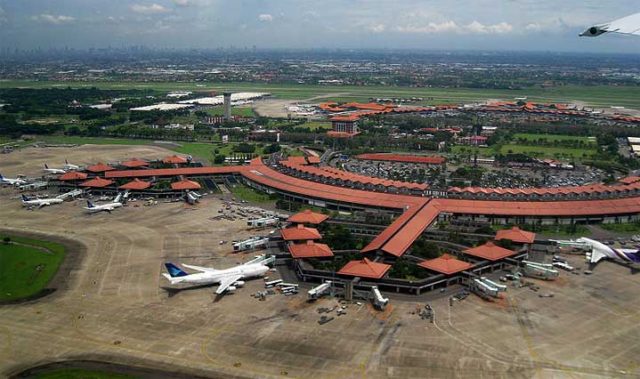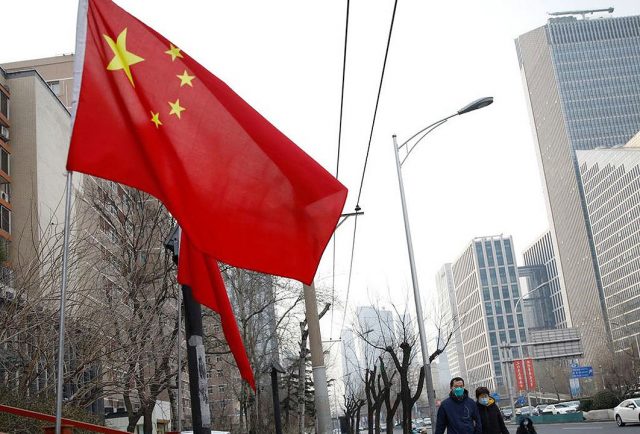Gems from two gutsy ladies
“Insight from Oversight” was the title of the talk of former Commission on Audit (CoA) Commissioner Heidi L. Mendoza when she and former Supreme Court Associate Justice and Ombudsman Conchita Carpio-Morales appeared before the regular Archer Talks and Eagles Meet our Leaders Zoom webinar. The joint webinar is organized by alumni of De La Salle Manila Grade School class of ’61, High School ’65, and College ’70 and Ateneo de Manila University Grade School ’57, High School ’61, and College ’65.
Commissioner Mendoza, a staunch anti-corruption crusader, was with the CoA for 20 years starting in 1995, including her stint as Commissioner from 2011-2015. She is an accomplished United Nations (UN) auditor who currently chairs the Audit Committees on the Public Sector Auditing Standards Board, the Foreign-Based Government Agencies, the UN Food and Agriculture Organization (FAO), and World Health Organization (WHO). She is also chair of the Audit Steering Committees of various programs funded by Australian Assistance for International Development Aid (AusAid).
From 2006 to 2010, just before she was appointed Commissioner, Mendoza served as governance and anti-corruption consultant to the Asian Development Bank (ADB), AusAid, and the Presidential Anti-Graft Commission. Commissioner Mendoza’s involvement with international and local agencies provided her the opportunity to engage anti-corruption and governance stakeholders in the private and public sector, especially local governments, in policy dialogues on governance issues. Mendoza, who hails from Tayabas, Quezon, has also assessed the impact of procurement reforms in local and National Government agencies for the World Bank-Manila and the accounting and internal audit system of local government units for ALTAIR-European Commission.
Mendoza’s experience in investigation, assessment, promoting accountability and transparency should be obvious by now even if there are many more facets of her overall experience that we need to surface. With our still incomplete list of Mendoza’s experiences and achievements, we can say we have more than enough insights of Mendoza to share. And this is precisely what she did: share her experiences and provide some tips to budding auditors and plain citizens on how to detect possible irregularities.
Acting like a tag team, Commissioner Mendoza discussed two points: Ano ang dapat malaman (What we should know) and Ano ang dapat bantayan (What we should we look out for) while Justice Morales discussed: Ano ang maaaring gawin ng ordinaryong mamamayan (What can an ordinary citizen do, to heighten accountability and transparency).
In making her points, Mendoza uses as reference point a timely and relevant issue: the purchase by government, at the height of the pandemic, of face masks and shields worth P8 billion from a company with a paid-up capital of P625,000 and headed by a Chinese national.
Right at the opening bell, Mendoza asked four basic questions:
1. Is negotiated procurement a normal recourse during an emergency?
2. Is procuring fast in conflict with being prudent?
3. Are we (achieving) the objective of swift or expedited response (and still) getting the best value for our money?
4. What do I think of emergency procurement?
In answering these questions, Mendoza says that the main principle to remember is “to exercise the prudence of a good father.”
Based on her vast experience, people who want to make fast money often hide behind or use as a shield from scrutiny and stringent controls, emergency procurement. But even when implementing emergency procurement, trained CoA personnel scrutinize the transactions carefully since “these are public funds.” But even if controls are relaxed in emergency procurement, we must still stick to the basic safeguards and not do away totally with so-called hand rails, cautions Mendoza.
Even if warranted, there are, however, risks involved in emergency procurement based on a study of 12 countries: higher and more uncertain prices for key emergency items; increased multi-purpose suppliers or companies without previous experience or with no experience in selling emergency supplies (referring to a hardware store allegedly supplying toilet paper); no experience in selling emergency supplies.
Mendoza cites RA 9184 which refers to the financial capability of the supplier. Even if it’s an emergency procurement, the net financial capacity is still a critical factor and so is the experience of the supplier in delivering or performing the service or the item. “There’s no compromising here,” Mendoza says. A rigorous study of the financial statements of a particular supplier does “not inspire confidence,” Mendoza says, quoting the observation of a group of young CPA, accounting and business graduates from La Salle and Ateneo on the financial capacity of a supplier of medical supplies which has earned for itself bad publicity and, possibly, notoriety. Mendoza adds that “the comments of those Lasallians and Ateneans show that they are very polite.”
Mendoza cites so many other instances of other different attempts to defraud the government starting at the bidding stage but are too many to cite in some kind of detail.
Mendoza summarized her overarching position on emergency and negotiated procurement by stating that, “the pandemic may have justified certain exceptions in order to afford the government the most expedient response but it may not be enough to throw into the wind the exercise of prudence of a good father of the family. It is the public nature of the funds involved that somehow delimits the extent to which one can go to relax the rules in the name of expediency.”
In her usual passionate statements decrying corruption, lack of integrity and honesty in government, former Supreme Court Associate Justice and Ombudsman Conchita Carpio-Morales, called on the citizens to empower themselves in fighting corruption.
Justice Morales’s presentation, entitled “Get Involved and Organize,” started with a quote from the National Democratic Institute: “Participation is an instrumental driver of democratic and socio-economic change, and fundamental way to empower citizens.”
Justice Morales offers specific suggestions to the citizens, starting with seizing every opportunity to influence public decision by demanding access to information like public officials’ Statement of Assets, Liabilities and Net Worth (SALN), monitoring budget hearings, taking advantage that this is an election year, and utilize both social and print media.
Morales, who retired from public service after 47 years of exemplary public life, urged citizens to pursue social accountability mechanisms by reporting corruption in on-line platforms and confidential hotlines, and by, among other things, educating the public on procurement, budgeting, and the power of audit. Pressing the attack, the former Ombudsman called for the public to do systematic collection, analysis, and broad dissemination of information. She urged cause-oriented individuals to lead the formation of coalitions like Rights to Know, People and Budget, Citizens’ Budget Tracker and to help these movements by providing information, expertise, and, when possible, funds.
Finally, former Justice Morales spurred Filipinos to fight apathy and indifference by denouncing corruption, participating in anti-corruption efforts, and helping formulate anti-corruption strategies. In her final message that would put the finishing touches on a stirring call to action and a morning of informative, instructive, and ethical lessons in governance, Morales pointedly quoted Transparency International, “Populist leaders tend to use public outrage for corrupt behavior to punish political adversaries. Populist movements present themselves as an anti-corruption force drawing on the idea that corrupt elites work against the interest of the people. In many cases, however, such movements are not accompanied by an actual anti-corruption strategy and even facilitate new forms of corruption.”
Philip Ella Juico’s areas of interest include the protection and promotion of democracy, free markets, sustainable development, social responsibility and sports as a tool for social development. He obtained his doctorate in business at De La Salle University. Dr. Juico served as Secretary of Agrarian Reform during the Corazon C. Aquino administration.













